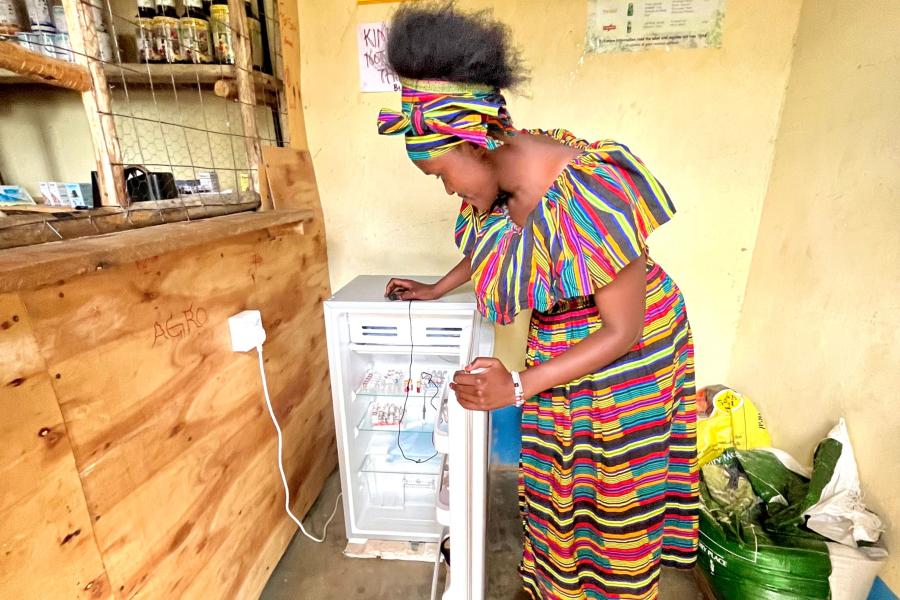Solutions for gender-inclusive livestock vaccine systems

How do we know a livestock project is empowering women? What data is needed to measure this impact? And what are the results?
Watch recording
Join us for a webinar sharing lessons from IDRC's Livestock Vaccine Innovations Fund (LVIF) projects. The LVIF supports the development of affordable livestock vaccines, targeting diseases that impact women and men livestock smallholders and facilitating their access and use at scale.
A set of four participatory action research projects within LVIF are addressing barriers faced by women in livestock vaccine systems across six countries and generating new evidence on how they can better benefit and participate in these systems.
Come and hear more about how these projects worked to empower women, what data and evidence they collected, and what they learned!
Speakers:
Evelyn Baraké, program officer with IDRC’s Climate-Resilient Food Systems program introduces the LVIF projects.
Agnes Loriba, Team Leader for CARE International in Ghana's Food and Water Systems and Climate Change Program Portfolio and Peter Awin, CEO of Cowtribe, presenting on the Women Rear Project (Ghana).
Nargiza Ludgate, Assistant Scholar, University of Florida International Center, presenting on the Advancing women’s participation in livestock vaccine value chains in Nepal, Senegal and Uganda project.
Salome Bukachi, Associate Professor, Institute of Anthropology, Gender and African Studies, University of Nairobi, presenting on the Gender-Inclusive Vaccine Ecosystems (GIVE) project (Kenya).
Hellen Amuguni, Associate Professor, Department of Infectious Disease and Global Health, Tufts University, presenting on the SheVax+ project (Rwanda, Kenya and Uganda).
This webinar was hosted by the Livestock Data for Decisions community of practice on Gender and Livestock Data.
Header photo: Ruth Ntenya is showing the vaccines stored in her solar fridge in her Agrovet shop located in Machakos county, Kenya. Photo credit: Evelyn Baraké/IDRC.


